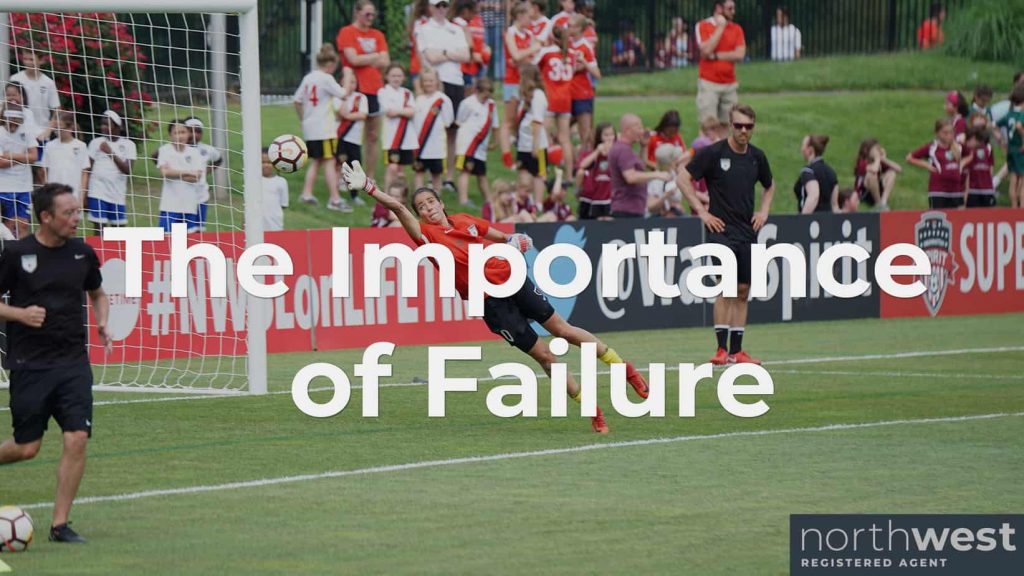Do We Really Need to Teach Our Children to Fail?

Right now, there are children playing in tee-ball leagues, and they’re not keeping score. As if coddling the youth with a tee to hit off of wasn’t enough, we’ve done away with points all together. There are school children running races and no matter who finishes first, everyone gets the same participation trophy. Losers are heralded, and winners go unrecognized. Are we shielding the youth from failure, or are we negatively skewing their definition of success? There are no trophies for business owners; there’s either being in the black, or having your windows boarded up. So what should we teach our children? How do we walk the the thin line between building their self-esteem and letting them learn from failure?
Thirty years from now, the same youth that are being rewarded for just showing up will be the people that own your favorite boutique store, local restaurant, or maybe the HVAC repair company with the annoying radio jingles. Is teaching them that everyone is a winner during their formative years too starkly contrasted against the dog-eat-dog world of capitalism? As parents, we do our best to keep our children protected from things. Like sharp corners on coffee tables, unvaccinated kids at the park, and truck stop bathrooms. We even do our best to shield them from failure-especially at young ages-and the “Participation Trophy Generation” has been the newest evolution of this phenomenon.
It’s very easy to make light of, and, admittedly, some of the more extreme cases are extra cringe-worthy. For instance, I’ve heard of a youth softball team that spends the first week of practice only pretending to throw or hit a ball as to “not introduce failure this early on in the season.” As funny as the thought of young children pretending to hit, chase and throw a pretend ball is, it’s important to remember that these kids’ parents paid for their children to play actual softball, not a pantomime masterclass. Maybe that coach is taking it to an extreme, but, truth be told, I can respect the overall sentiment. We shouldn’t thrust our children into failure, or purposefully expose them to it, just to toughen them up. Instead, maybe we should help them learn to cope with it, because—no matter what—failure happens.
According to a survey conducted by Small Business Trends, half of all small business fail within the first four years. In business, the winners and losers are clearly defined and you have to be proactive and vigilant to keep yourself above water, especially in the early stages. Most small businesses operate at a loss for months, or even years. Maybe letting our children have fun learning the ins-and-outs of an activity with no negative repercussions isn’t the worst thing in the world. While they’re not necessarily experiencing what it feels like to fail, they are learning what it means to persevere and keep pushing, even when the rewards aren’t there. When you first start a business, odds are that you are going to struggle, and being able to keep your doors open for another month, pay your bills on time, and manage the start-up debt you’ve incurred is no easy feat. It’s going to take steadfast resilience to keep your head up during the early stages, and until you’re profitable, every transaction is just a participation trophy.
The bottom line is, some people need to fail so that others may succeed. Just like the best athletes win in their respective fields, the best businesses—with the best products and services—get the gold.
Maybe the best thing to take away from the “Participation Trophy Generation” is that this cohort of kids might be more resilient to set backs. The critics say we are spoiling our children and making them soft, but our kids aren’t dumb. Whether or not they get a participation trophy just for showing up, they know whether they truly achieve something or not.
Sure, the younger generation might eat Tide Pods, and you can make the argument that they are less adjusted for the world, but the world is theirs. The school curriculum they are raised on puts ours to shame, and their opportunities are boundless. The combination of their education and having the majority of the world’s information at their fingertips leads me to believe the kids will be alright. I say, let them get participation trophies and let them have fun, unbridled by the constraints of competition. In the blink of an eye, they grow up and the trophies they receive will become mundane things, like paying electricity bills on time and folding their own laundry. We don’t need to specifically teach our children about failure, that’s life’s job, and life is very good at it’s job.



